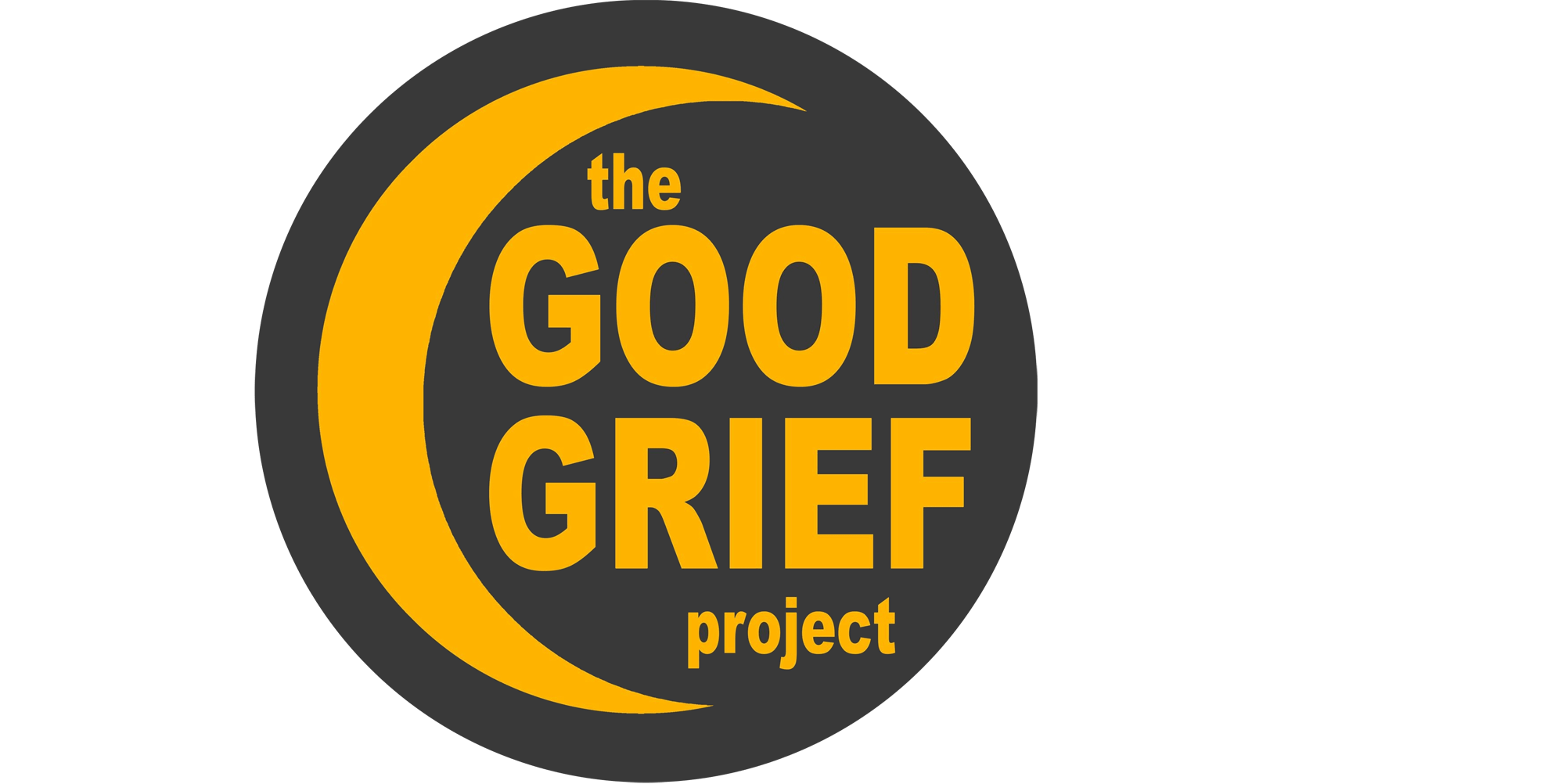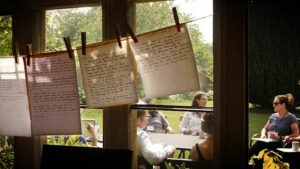As many will know the core team at The Good Grief Project has been joined by Lizzie Pickering. Lizzie and Jane will be working together to deliver a range of talks and presentations to illuminate a proactive approach to grief.
Lizzie comes to this work as we have. She too is a bereaved parent. In 2000 her six year old son Harry died. He had the neuro-degenerative genetic condition Spinal Muscular Atrophy.
After her early career at Channel 4 and following Harry’s death, Lizzie co-founded the Fundraising Team at Helen & Douglas House, Hospice for Children and Young Adults in Oxford and stayed on as Events Producer. Over 10 years she produced the annual comedy and music show ‘Childish Things’ with casts including Jimmy Carr, Rob Brydon, James Corden, Miranda Hart, Michael McIntyre, Radiohead, Rowan Atkinson, KT Tunstall and many more.
In 2014 she set up In Trust Films with her old friend, Director Polly Steele to make the award-winning drama Let Me Go starring Juliet Stevenson.
We are delighted that Lizzie has chosen to share her expertise with us. The following are her first impressions of what it means to be part of TGGP.
Q: Why have you decided to work for The Good Grief Project?
A: Following my son Harry’s death in November 2000, as part of my time at Helen & Douglas House, I worked closely with the bereavement team there, having also received incredible, life-changing bereavement support from the team myself. My children had help from their siblings group, the Elephant Club. I discovered how important it was to find the best kind of bereavement support which suited me and over many years I tried many different ways to survive my grief – and more importantly to live well again, always bringing Harry’s memory with me. Those ways included group work, individual support, meditation, yoga, craniosacral therapy, hypnotherapy and writing in order to be able to look after my other children, work hard and live life to the full! Although the time came when I wanted a change I have always kept my connection with bereavement, through helping other families in a voluntary capacity and public speaking on all aspects of grief. When I met Jane and Jimmy through an old school friend and heard about The Good Grief Project, it felt so right that we would end up working together and sharing our combined professional and personal experience.
Q: What has it been like so far?
A: I love this work – and feel so connected to it on so many levels. Jane and Jimmy are also film-makers and our shared love of film, helping others to grieve through creative and active pursuits alongside public speaking feels like a very positive way forward, making the most of everything we have learned. Both our families are in a club no-one really wants to have to join, that of bereaved parents and siblings, but along the way we have met extraordinary people, laughed and cried a lot and I have certainly, constantly been inspired by the incredible strength of human nature I have witnessed. We keep learning from each other and those around us. This is a strong community!
Q: It has been 18 years since Harry died. How has your grief changed?
A: On the whole I would say I live with it well. It is always with me, every day, but I hope it doesn’t define me – it is part of me. Harry will always be a part of me along with my surviving children Cam and Emilie so in that way my love and grief for him are there in the mix too. I do feel grief is accumulative though and as other life events have happened – the death of both my parents, two very close friends and divorce, I have had times when I have had to strongly re-visit bereavement support – and in different ways from the start. It is important never to give up, to acknowledge when you are struggling again and take action. It is never over and can sometimes surge again. On some days I can feel on top of the world, so full of joy and feeling immensely thankful for surviving the bad times that I can wonder if I will ever feel so bad again. But the truth is ‘the depth of your sorrow and the height of your joy’ are all possible and are part of life. I am just thankful for each good day and for the many opportunities Harry has given me to learn and hopefully help others.
Q: Can you escape from grief? How do you relax?
A: I’m not sure I ever actually escape from grief and to some extent I wouldn’t want to. I firmly believe that the depth of grief I feel for Harry is exactly matched by my love for him, in the same way I love my other children and simply couldn’t imagine life without them. But over the years I have learned ways of coping when it hits me. Sometimes I can feel my battery running out and needing charging. This can be linked directly to grief and often to an exhaustion I feel when I have revisited Harry’s story for my work. When I get that feeling, I know the only way for me to get through it is to sleep. I eat healthily, go to bed early, don’t talk to anyone and know that I will feel much better the next morning. I literally need to re-charge. It’s a drained feeling I only get from that connection to grief, but I’m not scared of it anymore, I can manage it but I also know it’s something no-one else can help me with, I have to take charge of it myself. Over the years (and especially early on after Harry died) I suffered from insomnia and panic attacks linked to grief, but again – I tried to find methods to deal with it, always without medication, I didn’t want to dull the pain, it was important to face it full on – in my case hypnotherapy and meditation helped enormously.
Q: How do you see your role for The Good Grief Project developing?
A: I am particularly enjoying developing our Corporate Consultancy work on ‘Grief and Loss in the Workplace’. We are talking to major national and international companies about how they make provision for people coming back to work, not only after a major bereavement but also how they deal with grief and loss which may be through a diagnosis, divorce or work change or displacement. This work is fascinating and there is so much scope. We are finding that many companies are box ticking by offering grief counselling for 4-6 weeks after a bereavement, but they have no provision after that. Sadly grief doesn’t have an end date and as many of us know all too well, it can change over many years, not always for the better. If unresolved grief is not dealt with properly, companies can lose staff through days off work because of the physical aspects of mental trauma. Particularly of course with classic heart and gut problems.
We have so many suggestions and ideas for how companies can make good provision for their staff and even find the positive outcomes of dealing with grief in the best way. We can help create security, loyalty and hope, not just for the person who has suffered a loss, but for whole teams and departments around them. Jane and I are delivering this work, supported by Jimmy’s brilliant films and we have some very exciting meetings, workshops and a webinar set up for Spring 2019. In one company alone, we have the chance to influence, educate and help 30,000 staff as a result of working with their HR Directors. And that’s just one.
Now… back to work!
Feedback from a recent presentation
Lizzie and Jane’s presentations really brought practical and insightful ways to support people going through a bereavement and subsequent grief. As an HR team, the insights were really valuable and powerful, in improving our understanding and approach to this difficult subject. Well worth the time spent in the workshop’. Noel McGonigle, HR Director Savills UK, Europe and Middle East
If your company is interested in hearing more about our presentations, please do get in touch by writing to lizzie@thegoodgriefproject.co.uk
Now… back to work!





